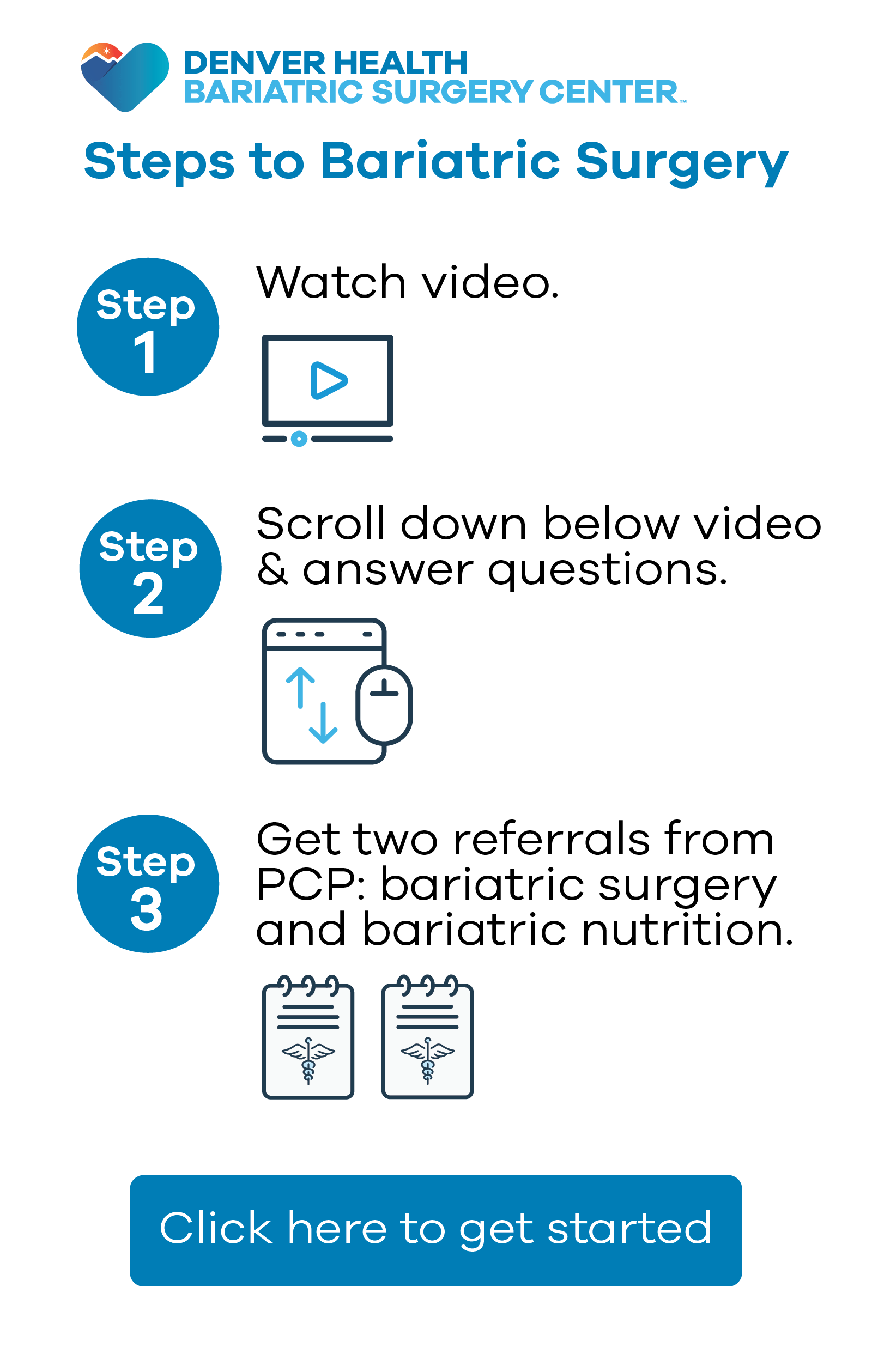The Bariatric Surgery Center at Denver Health strives to answer all the questions you may have about bariatric surgery and our program. Below are the most common questions we receive from interested patients.
Frequently Asked Questions about Bariatric Surgery
Can bariatric surgery be reversed?
Weight-loss surgery should be considered permanent and patients should enter into a surgical weight-loss program fully committed to the reaching their goals. If you are asking this question in the beginning of this process, surgery may not be right for you.
Will I need plastic surgery?
Plastic surgery may be an option. Many factors affect the need for plastic surgery following bariatric surgery, including:
- Starting weight
- Amount of weight lost
- Location of the excess weight
- Age
Younger patients have a greater amount of skin elasticity and therefore are less likely to need plastic surgery. You may speak with one of the plastic surgeons on the Surgical Weight-Loss Center team about your specific situation and undergoing post-bariatric plastic and reconstructive surgery.
Regarding insurance coverage of plastic surgery, coverage is not guaranteed. You will need to contact your insurance provider to determine your specific plastic surgery benefits.
Will I have gallstone complications?
Gallstones — clumps of cholesterol and other matter that form in the gallbladder — following surgery are common during rapid weight loss. Medication should be taken to help prevent gallstones from developing after bariatric surgery.
If gallstones do develop after surgery, another follow-up surgery may be required. If you have gallstones before surgery, the gallbladder will be removed.
Will I have to quit smoking?
For patients who are considered high-risk, yes, you will need to quit smoking before surgery.
High-risk patients:
- Females with a BMI > 50
- Males with a BMI > 45
- History of asthma that requires daily treatment
- Required to wear CPAP/oxygen
When can I return to work?
The timing for returning to work depends on the type of job you have. A manual job with lifting will require you to be out for six weeks. If you have a desk job, you may be able to return to work earlier. However, the concern is that at four weeks, you change from pureed food to regular food along with separating solids from liquids, and this sometimes is very challenging until you figure out what you can and cannot tolerate to eat. You will work with your medical team to determine the exact amount of time you will need to be off of work.
Can I become pregnant after bariatric surgery?
Yes. Successful pregnancies following bariatric surgery are common. In fact, you are more likely to get pregnant as you lose your excess weight.
Can I drink alcohol after surgery?
We recommend that you avoid alcohol as this can cause vitamin/mineral deficiencies and provides an empty source of calories.





